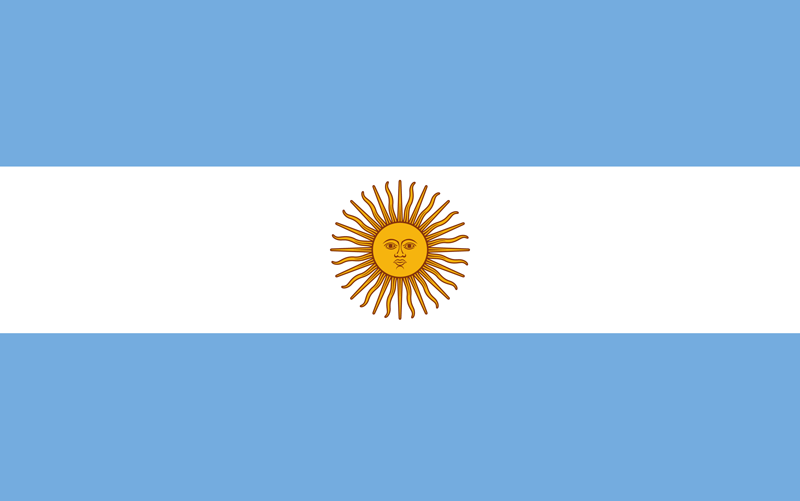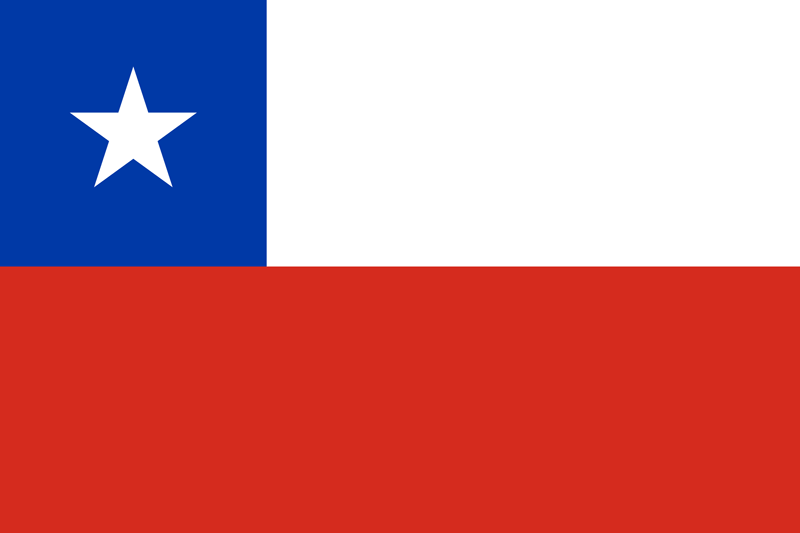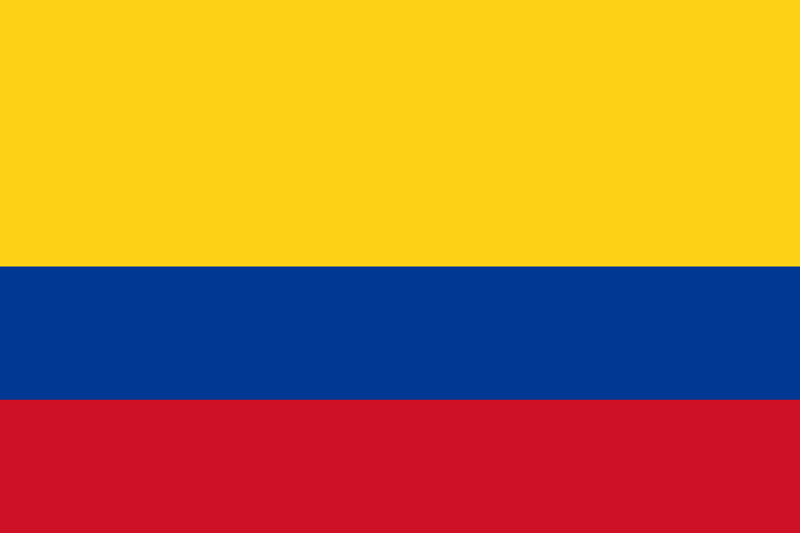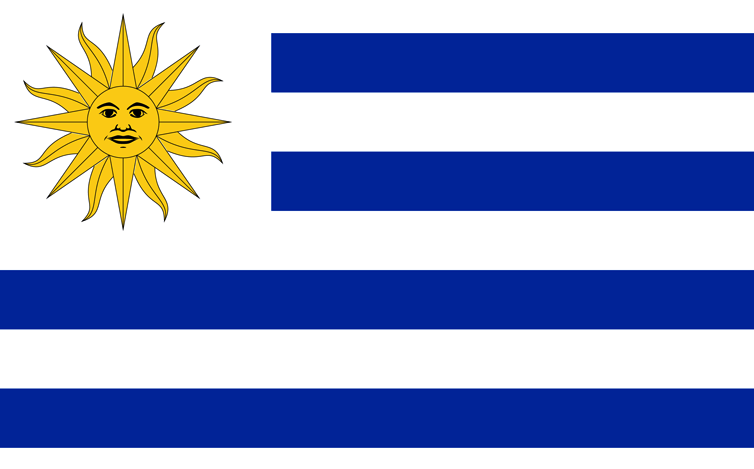CONOCIENDO A TOMÁS CASSINA
- 22 de junio de 2020
[tp lang=»es» not_in=»en»]
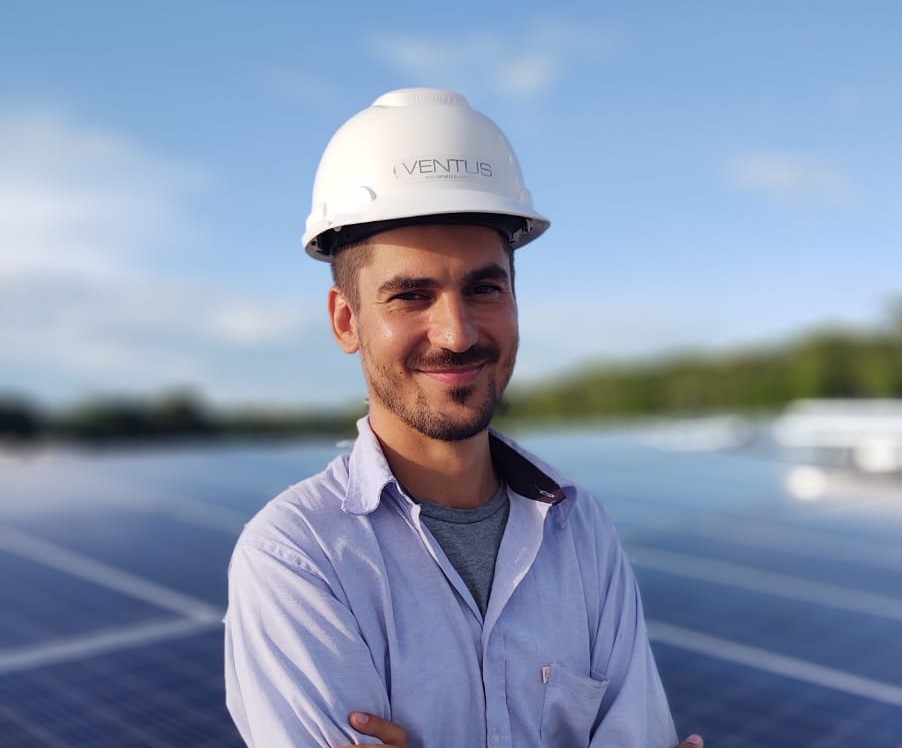
¿Cuándo comenzaste a trabajar en Ventus? ¿Qué experiencia previa tenés?
Comencé a trabajar en Ventus en 2018. Antes de Ventus trabajé 4 años en una empresa internacional de Ingeniería & Construcción como ingeniero eléctrico, donde participé en el diseño de diferentes proyectos como centrales eléctricas de ciclo combinado, proyectos en el sector y la ingeniería básica de un Parque Eólico. Paralelamente estudiaba en la facultad y trabajaba en una ONG instalando sistemas fotovoltaicos en escuelas rurales que estuvieran aisladas de la red.
Desde que entre en Ventus me desempeñé como ingeniero eléctrico en las oficinas de Buenos Aires. Más tarde pasé a la parte operativa de obra trabajando para los proyectos solares de P.S. Cordillera (San Juan, Argentina); P.S. Antofagasta de la Sierra (Catamarca, Argentina); P.S. Villa Maza (Buenos Aires, Argentina) y ahora en Celsia Solar Espinal (El Espinal, Colombia).
¿Cómo se compone el equipo de Ventus en obra?
En la actualidad el equipo de obra del Proyecto Celsia Solar Espinal está compuesto por un Jefe de Obra, Residentes civiles y de comunicaciones, responsable ambiental, y un equipo de comisionado y puesta en marcha del parque.
La situación de la pandemia actual nos ha forzado a tener que afinar la coordinación y comunicación entre los distintos miembros de nuestro equipo radicados en Bogotá, Buenos Aires, Santiago de Chile o Montevideo.
¿Qué desafíos ha representado la construcción del Proyectos en Colombia?
El Espinal es el primer proyecto que Ventus construye en Colombia y como tal presentó muchos desafíos. Primeramente, a nivel administrativo. Las regulaciones, normas y permisos para construir en este país tienen un nivel de exigencia y especificidad distinto al de Uruguay y Argentina donde ya habíamos trabajado.
Ciertamente el mayor desafío es el que vivimos todos desde hace unos meses con la pandemia que estamos atravesando. A nivel obra hemos tenido que ajustarnos implementando soluciones temporales en sitio, ya fue imposible resolver la logística para que suministros y subcontratistas claves llegaran al sitio en los plazos originalmente planeados.
Teniendo esto en cuenta, es importante resaltar que gracias a una eficiente gestión de Ventus, en ningún momento se frenaron los trabajos y hasta pudimos completar hitos importantes del proyecto como la energización de la planta en plena pandemia.
¿Qué diferencial crees que puede brindar Ventus a los clientes?
Al margen de la experiencia en proyectos, creo que el valor más fuerte que tiene la empresa es la gente que la compone. La capacidad de sus técnicos, la marcada experiencia de nuestra gente en obra, la visión para el desarrollo de negocios, la virtud en el armado de equipos con gran capacidad de trabajo y audacia: creo que todo estos son los pilares de Ventus.
[/tp]
[tp lang=»en» not_in=»es»]

When did you start working at Ventus? What previous experience do you have?
I started working at Ventus in 2018. Before Ventus I worked 4 years in an international Oil & Gas company as an electrical engineer, where I participated in the design of different projects such as combined cycle power plants, and basic engineering of a wind farm. While I was studying to get my degree, I worked in an NGO installing photovoltaic systems in rural schools that were isolated from the grid.
Since I joined Ventus I have worked as an electrical engineer in the Buenos Aires offices. Later I stated participating in the construction work for solar projects of P.S. Cordillera (San Juan, Argentina); Antofagasta de la Sierra (Catamarca, Argentina); Villa Maza (Buenos Aires, Argentina) and now at Celsia Solar Espinal (El Espinal, Colombia).
How is the Ventus team composed on site?
Currently, the construction team of the Celsia Solar Espinal Project is composed of a Construction Manager, civil and communications residents, environmental manager, and a team of the farm´s commissioning.
The current pandemic situation has forced us to refine coordination and communication among the different members of our team based in Bogotá, Buenos Aires, Santiago de Chile or Montevideo.
What challenges has the construction of the Projects in Colombia represented?
El Espinal is the first project that Ventus builds in Colombia and as such presented many challenges. Firstly, at an administrative level. The regulations, standards and permits to build in this country have a different level of demand and specificity than in Uruguay and Argentina where we have already worked.
Certainly, the greatest challenge is the one we have all been experiencing for a few months with the pandemic we are experiencing. At the site level, we have had to adjust by implementing temporary solutions on site, mostly regarding to providers and deadlines compromised with the client.
Taking this into account, it is important to highlight that thanks to an efficient management of Ventus, at no time were the works stopped and we were even able to complete important milestones of the project such as the powering of the plant in the midst of the pandemic.
What differential do you think Ventus can provide to customers?
Regardless of the experience in projects, I think that the strongest value that the company has is the people that compose Ventus. The technical capacity of its technicians, the marked experience of our people on site, the vision for business development, the virtue in assembling teams with great capacity for work and audacity: I believe that these are the main pillars of Ventus.
[/tp]
